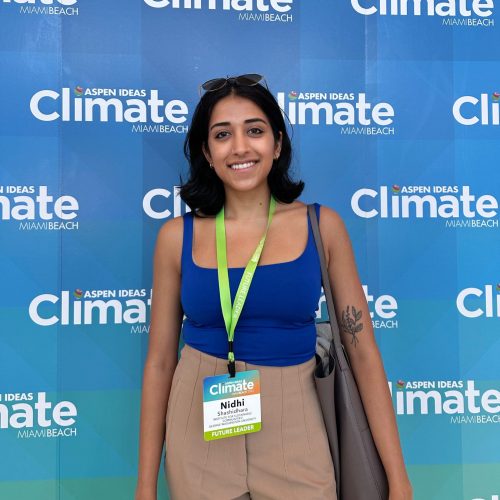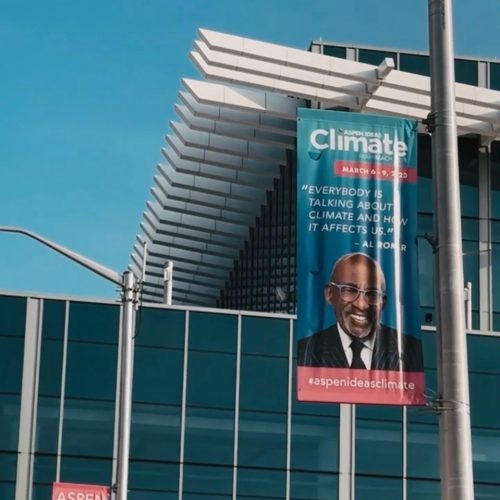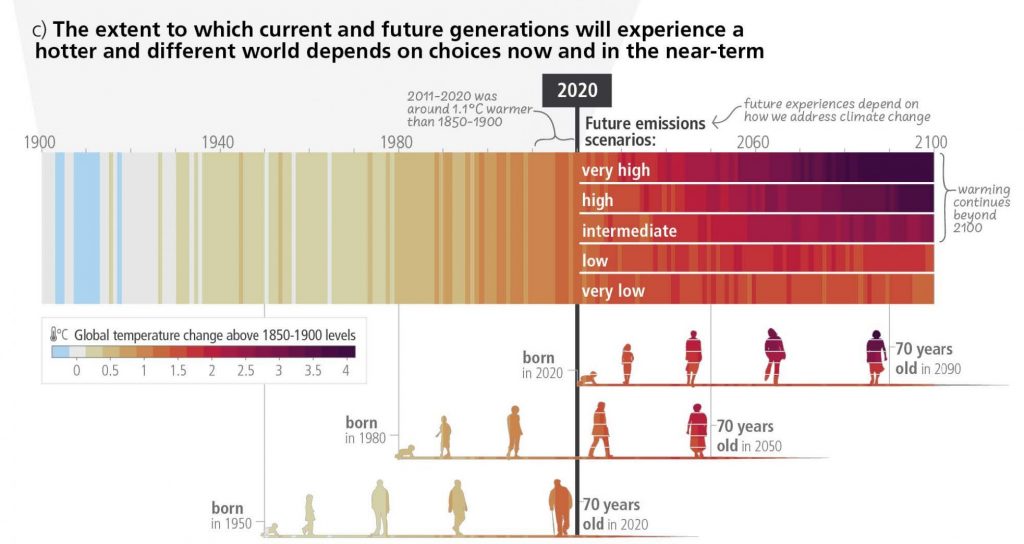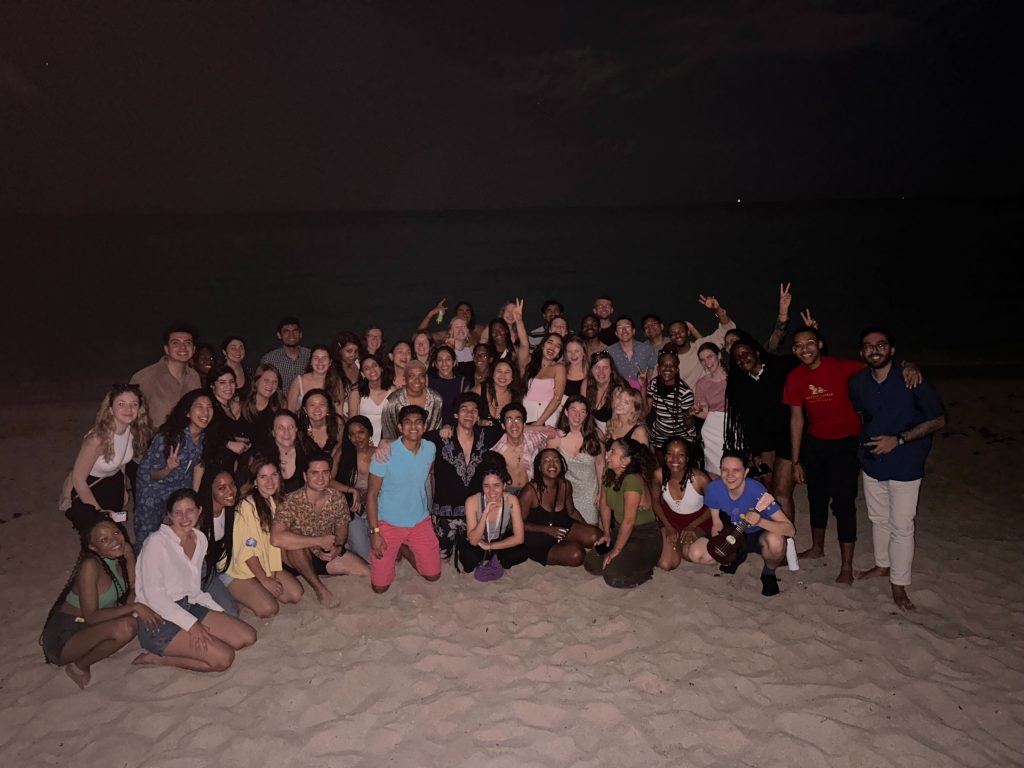Aspen Ideas: Climate (Ideas) brought together more than 2,000 individuals from corporations, non-profits, government, tech and various other sectors to engage in discussion, amplify innovation and align on a joint vision forward to address the climate crisis. A few days before this conference began, a smaller group of 250 young leaders, ages 18-30, from around the world convened to discuss the same topics of climate policy, advocacy, and individual action from a slightly different perspective – that of youth and urgency. The Future Climate Leaders Summit (FCLS) had two main goals:
- Provide youth leaders with tools to create more significant change in their local communities.
- Create a robust network of climate leaders that will work together to solve the urgent crisis.
I spent a week in Miami Beach, FL, participating in both the FCLS and the Ideas conference, immersed in workshops and conversations, both formal and informal, with these youth leaders. Reflecting on my time, here are some key takeaways on youth engagement and leadership in the global climate movement:

1. Climate change solutions require purposeful intersectionality.

This point really came through seeing all the great work my peers are undertaking. FLCS participants included climate scientists, advocates, influencers, engineers, non-profit professionals, etc., who occupy important spaces ranging from carbon capture to critical infrastructure and communications. In addition, these youth leaders hailed from all parts of the world, bringing with them the diverse perspectives to create the holistic solutions we desperately need. Attendees at the summit represented a diverse group of backgrounds and lived experiences, allowing them to truly understand what climate change means for both current and future generations. Many are already living on the frontlines of climate impacts or through disasters. From seeing their families, communities, and countries face harm, some youth leaders have felt the call to dedicate their life to climate action as early as 10 years old. Many of the youth leaders hold valuable insight into the circumstances of small island developing states and least developed countries, while others are from countries already advancing climate action or, on the flip side, adverse to climate action. While the youth leaders came from different countries and cultures, we were united under one common goal: building a sustainable, resilient and equitable future for all.
2. Being young does not mean you cannot make an impact.
Several of the youth leaders have already been impacted by the climate crisis and began their work at very young ages. They know from direct experience that the choices made today impact our current youth and future generations’ health, well-being, and livelihood. The new IPCC AR6 report breaks down the impact by generation and it shows that by the time the current youth generation is in our 70s, we will reach around 3°C global average surface temperature. We already know impacts will be disastrous past the 2°C threshold globally. For many island and coastal nations, that threshold is even smaller at a mere 1.5°C. We can’t afford to not listen to the science and mistake youth voices as inexperienced!

3. Young people truly harness the power of social media and communications that are instrumental to the climate movement.
Not only was this represented by the great work taken on by the “influencers,” who are actively working to disseminate and increase access to climate knowledge, but by the creative tactics young people use to add a layer of excitement and hope to climate discussions. This communication was not limited to the FLCS, but it also made an impact at the Ideas conference where the youth panel “OK, Doomers” quickly caught the attention of the larger group of attendees.

4. There’s fearlessness and confidence in many youth leaders who are not afraid to speak up about things that are not right.
Youth leaders have been shown to mobilize quickly to address concerns. This has continued past the conference as leaders share resources and events they are creating to address issues – climate or otherwise – in their communities at local, national, and global levels.
We need more spaces for collaborative engagement with youth leaders from all around the world at various stages of their careers and learning. Young leaders are long-overlooked allies that should hold a meaningful seat at the table for climate discussions for all the above reasons and more. Thank you, The Aspen Institute, for putting together this incredible opportunity!
